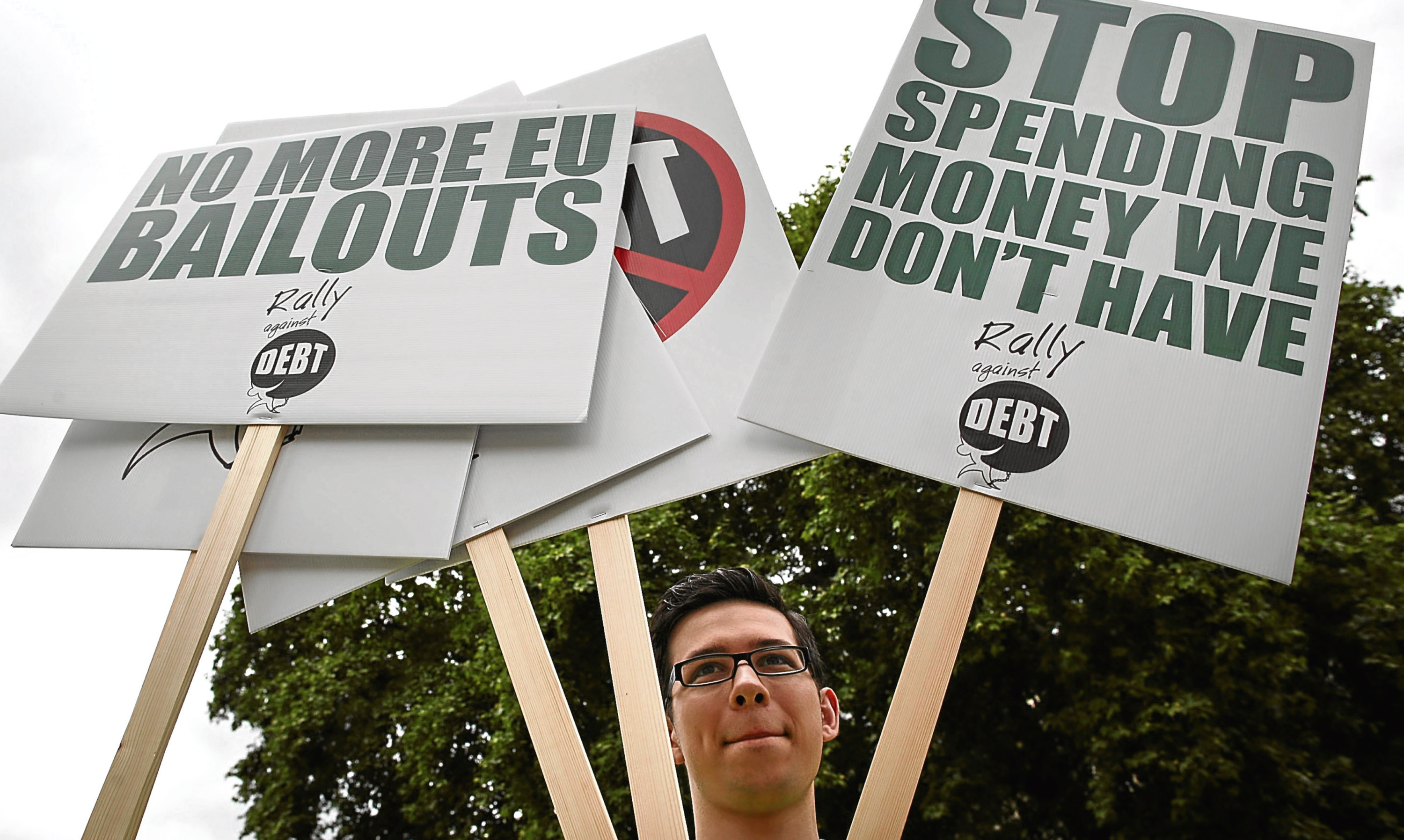With news that the Tories are game-planning indyref2, some nationalists are getting out the tap shoes and preparing to dance on the Union’s grave.
They might have been cheered by a report this week which puts UK debt at around £3.6 trillion.
What spells the end of a nation if it’s not debt so large none of us can imagine it? It is nearly double the total annual earnings of the country.
It’s an astonishing number – is it any more meaningful if you break down per household (£130,000)?
Domestic metaphors might work – we owe the equivalent of double of everything we own and earn.
You may have thought the number was closer to £1.5 trillion but the report from the Institute of Fiscal Studies (IFS) and others this week suggests this is an incomplete measure – when you tot everything up and don’t kid yourself on, then it is £3.6 trillion.
This is what is called Whole of Government Accounts (WGA).
No baddie
As we know, debt is as old as the hills, UK government debt has been around for hundreds of years and you and I couldn’t function without the odd loan. Debt is not in itself a baddie.
Historically, spending money we didn’t have allowed us to make the world a lot richer.
Its when the debt repayments get too much, or the whole thing is called in by some bruising money lender, that things get scary.
The UK’s immediate problems are the debt repayments. These take up more and more of government spending.
That wouldn’t a problem but as the IFS points out, the government is already spending way more than it can afford.
The figures which hit the headlines were about tax. The UK government raises 37% of national income in tax to cover all the services we want.
It spends as if it raised 45%.
What has long been said of Scotland – Scandinavian spending (high) at American tax rates (low) – is now true of the UK as a whole.
So do your tap routine on the UK’s grave if you fancy, because it looks like death would be mercy.
I would pause, though, because whatever debt the UK has, an Indy Scotland would inherit its share.
A huge national debt is something that has become normal for big economies – so long as there is not a revolution it can be handled.
But Scotland is aiming to start again (a revolution of sorts) and adopt a new currency. It’s a big problem.
Rather than sink into the details of currencies and debt, though, let’s look at the bigger picture.
The IFS is saying that the modern state is no longer affordable.
Trawl through the archives of reports and there is a consistent message – the standards UK citizens expect in public services are higher than what UK citizens are prepared to pay for.
The pensioner of today is getting money which their grandchildren will have to repay.
The sick person of today is being treated at the expense of the next generation.
The disability claimant is getting money which today’s children will have to repay.
If dark economic days come, then our children and grandchildren won’t simply be paying off our indulgent spending but they’ll be living in an economic chaos we created.
So chuck your tap shoes away and focus on the truth – this is gloomy news for unionist, nationalist and everyone in between.
The UK is burdened with debt and Scotland will be burdened with debt as we are running states we can’t afford.
This is the moral equivalent to immunising this generation from plague but permitting the Black Death when we die.
Straight bananas
The question facing anyone interested in the future of our country has nothing to do with whether you hate the Tories, Scottish Labour, Nuclear weapons, Boris Johnson, Brexit, straight bananas or Nicola Sturgeon.
The matter we need to concentrate on is how do we plan for a future where none of the services we currently enjoy might be possible.
It doesn’t matter a tuppenny toss what flag flies above the maternity ward – what matters is can you afford the incubators?
The same applies to any aspect of the state you currently enjoy.
As both sides begin to game-plan their strategies for the Union or Independence, neither has a vested interest in admitting that the whole system is bust. Yet this is the only important political message for people today.
There are reasons to be optimistic.
Technological advances may deliver much higher levels of social service at lower costs in the future or a surprising spurt in economic growth may reduce debt levels. The world has been messed up before and recovered.
But what we don’t need is a debate which pretends there is no problem.
Whether it suits your politics or not, this is just a very tricky time for nations.
If you want to start a new one, you need to stop obsessing about the past or present and focus all your energies on the future.
Mind you, if you want to protect an old nation, it’s still a hole in the head.
